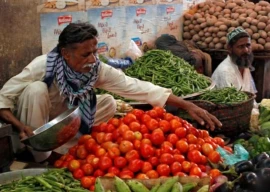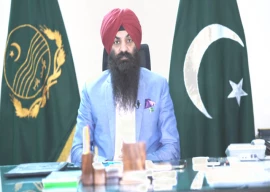
The participants of the meeting discussed the landmark resolution and elaborated its importance for women belonging to various walks of life.
They discussed the ignorance of many human rights activists, lawyers and other social workers about the resolution, and the government’s inability to implement the resolution in Pakistan.
Dr Rubina Sehgal introduced the resolution to the participants and said that it was especially formulated to help women living in conditions of war.
“A number of women in Pakistan are being affected by war. We have unfortunately become a society of conflict and militarisation. We need to uproot religious militants and educate our students about gender mainstreaming,” she said. Sehgal also stressed the need to provide health, education and shelter to the women in Swat and Fata.
Sheherbano, general secretary of the South Asian Free Media Association, said that people mistook gender mainstreaming to be related to women only. “This perspective serves as a drawback in educating the masses about women and peace,” she said.
“Women writers, philosophers and poets can play an important role in portraying the victims of domestic violence, injustice or sexual harassment as strong and independent individuals, instead of depicting them as helpless and weak, she added.
Misbah Momina from the National Commission on Status of Women said she was disappointed by the reaction to an act proposed by the Commission to outlaw sexual harassment at workplace. “It was to our great surprise that certain women themselves were opposing the idea. Negative discrimination and blaming the victim is unfortunately the biggest problem when it comes to women’s rights in our country.”
Other prominent participants of the meeting included an advisor to chief minister and Human Rights Secretary Arshad Bin Ahmed.
Published in The Express Tribune, November 4th, 2010.

1730360426-0/Menendez-Brothers-(2)1730360426-0-165x106.webp)
1732534556-0/taylor-(14)1732534556-0-165x106.webp)
1725872216-0/Tribune-Pic-(3)1725872216-0-165x106.webp)
1732532771-0/BeFunky-collage-(89)1732532771-0-165x106.webp)












COMMENTS
Comments are moderated and generally will be posted if they are on-topic and not abusive.
For more information, please see our Comments FAQ